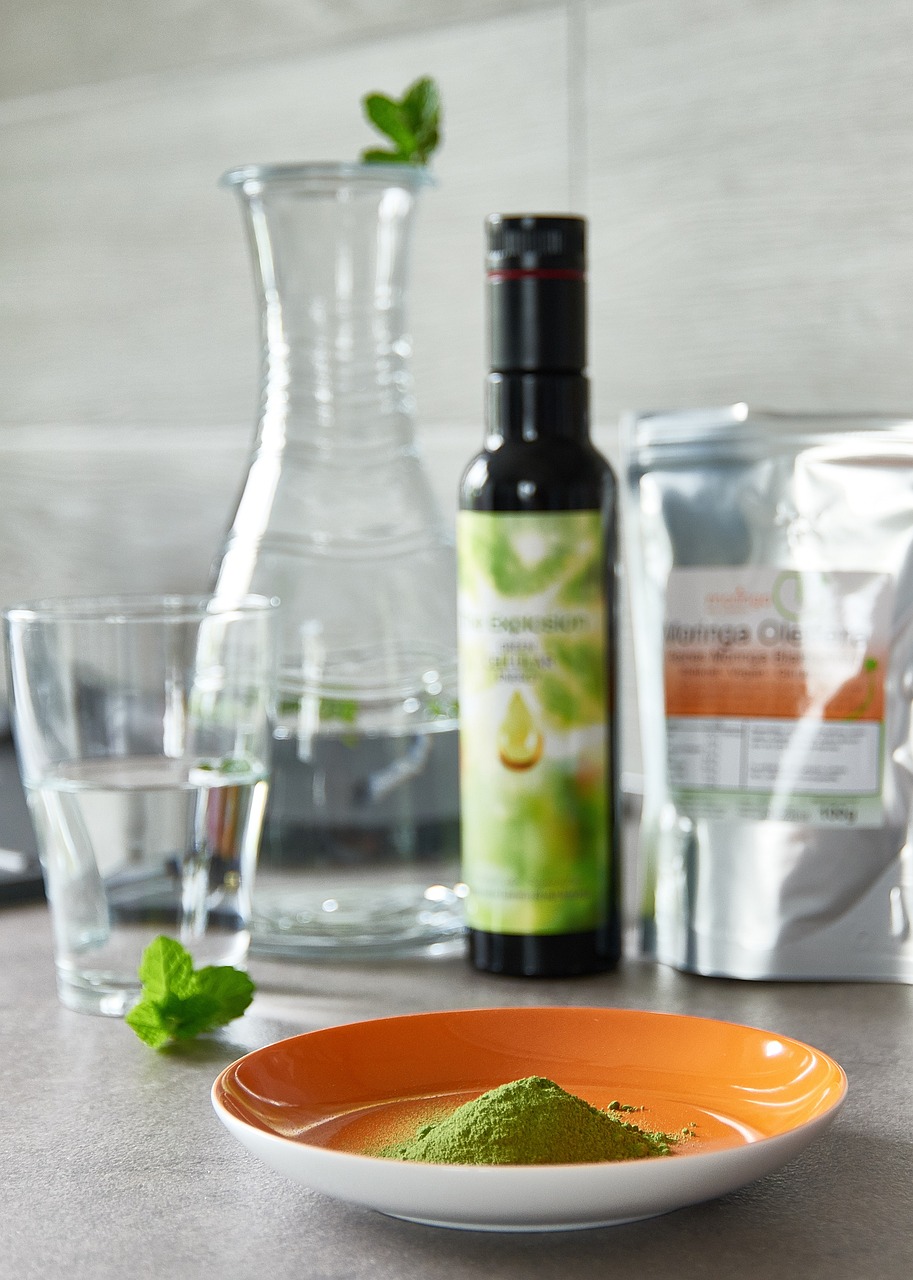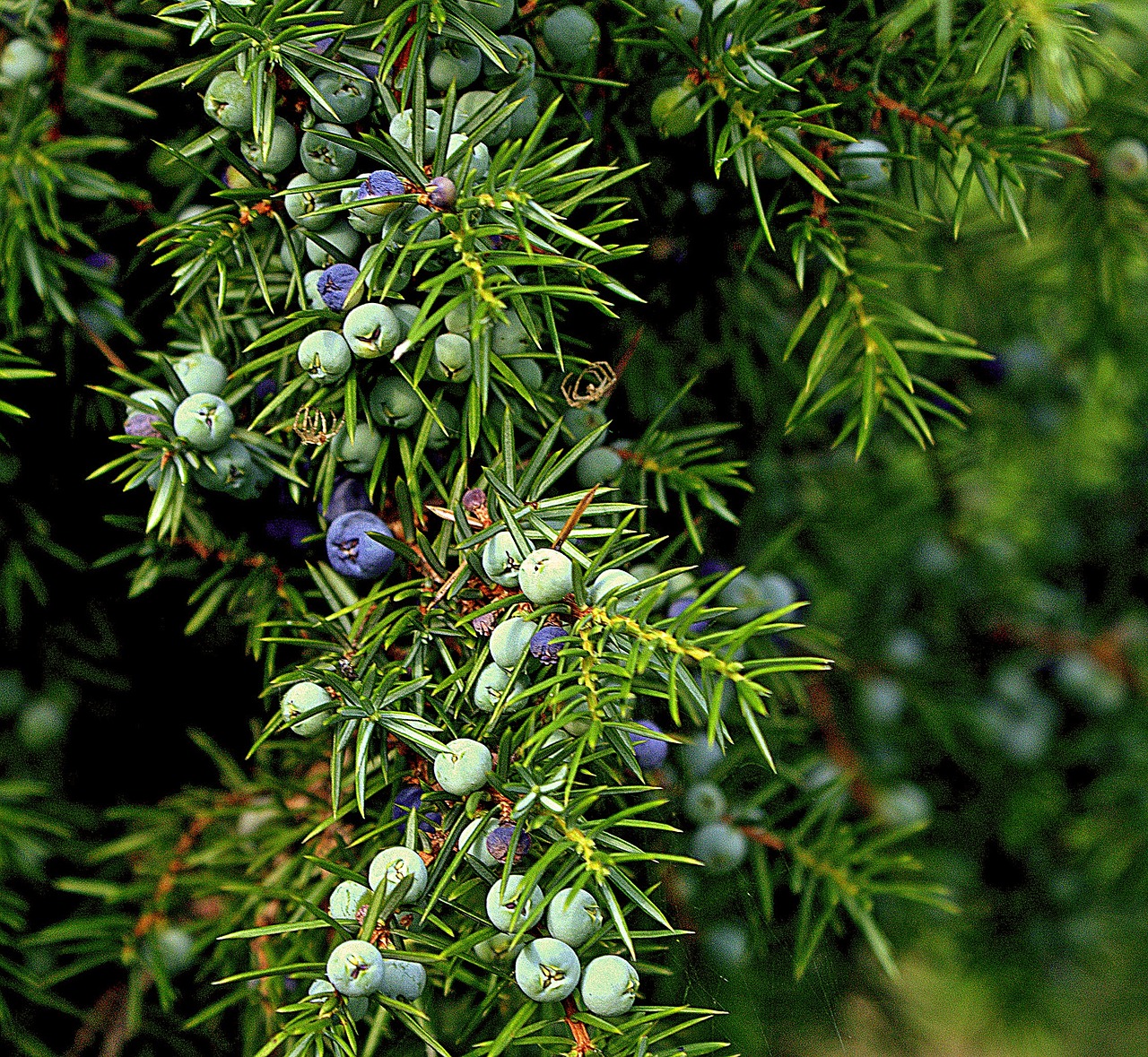Beauty
Moringa

What are the benefits of Moringa?
Moringa, also known as the “miracle tree” or “tree of life,” is a plant that offers a range of potential health benefits. Here are some of the benefits associated with Moringa:
- Nutritional powerhouse: Moringa leaves are rich in essential nutrients, including vitamins (such as vitamin C, vitamin A, and vitamin E), minerals (such as calcium, potassium, and iron), and antioxidants. It is particularly high in vitamin C, containing seven times more vitamin C than oranges and 15 times more potassium than bananas.
- Antioxidant properties: Moringa is known to contain several antioxidants, such as flavonoids, polyphenols, and ascorbic acid. Antioxidants help neutralize harmful free radicals in the body, reducing oxidative stress and inflammation, and protecting cells from damage.
- Anti-inflammatory effects: Some compounds found in Moringa, such as isothiocyanates, have been shown to possess anti-inflammatory properties. These compounds may help reduce inflammation in the body and alleviate symptoms of conditions like arthritis.
- Immune system support: The vitamins and minerals present in Moringa, along with its antioxidant properties, can help support a healthy immune system. It may enhance the body’s natural defense mechanisms, reducing the risk of infections and promoting overall wellness.
- Potential anti-cancer properties: Some studies have suggested that Moringa extracts may have anti-cancer properties, mainly due to their high antioxidant content and ability to inhibit the growth of certain cancer cells. However, further research is needed to understand the full extent of its potential in cancer prevention or treatment.
- Blood sugar regulation: Moringa leaves have been found to have anti-diabetic properties and may help regulate blood sugar levels. Some studies have shown that Moringa leaf powder can reduce fasting blood sugar levels and improve insulin sensitivity in individuals with diabetes.
- Digestive health: Moringa contains fiber, which is beneficial for maintaining a healthy digestive system. Adequate fiber intake supports regular bowel movements, prevents constipation, and promotes a healthy gut microbiome.
- Skin and hair health: Moringa oil, derived from the seeds, is commonly used in skincare and hair care products. It is rich in antioxidants and vitamins that nourish the skin, promote collagen production, and protect against environmental damage. It may also help moisturize the scalp, strengthen hair, and prevent dandruff.
While Moringa shows promise in providing these benefits, it is important to note that most of the evidence comes from preclinical studies and limited human trials. As with any supplement or herbal remedy, it is advisable to consult with a healthcare professional before incorporating Moringa into your routine, especially if you have any underlying medical conditions or are taking medications.
Benefits of Moringa for the stomach
Moringa, also known as the “Miracle Tree,” offers several potential benefits for the stomach due to its nutritional profile and bioactive compounds. Here are some of the benefits of Moringa for the stomach:
- Digestive health: Moringa contains high amounts of dietary fiber, which can support healthy digestion by promoting regular bowel movements and preventing constipation. Adequate fiber intake can also help prevent digestive disorders such as irritable bowel syndrome (IBS) and diverticulosis.
- Anti-inflammatory properties: Moringa leaves and extracts possess anti-inflammatory properties, thanks to compounds like flavonoids and isothiocyanates. These properties may help alleviate stomach inflammation and reduce the risk of developing gastrointestinal disorders, including gastritis and gastric ulcers.
- Gastric ulcer protection: Moringa leaf extract has shown protective effects against gastric ulcers in animal studies. It may help reduce the secretion of stomach acid, increase the production of protective mucus, and inhibit the growth of Helicobacter pylori bacteria, which is associated with the development of ulcers.
- Antimicrobial effects: Moringa extracts have demonstrated antimicrobial activity against various pathogens, including bacteria and fungi. This antimicrobial activity may help combat stomach infections caused by harmful bacteria and promote a healthy balance of gut microbiota.
- Antioxidant properties: Moringa is rich in antioxidants, such as vitamin C, beta-carotene, and quercetin. These compounds can help neutralize harmful free radicals in the stomach, protecting it from oxidative stress and reducing the risk of developing gastrointestinal diseases and cancer.
- Nutritional support: Moringa is a nutrient-dense plant, containing essential vitamins and minerals, including vitamin A, vitamin C, iron, calcium, and potassium. These nutrients are crucial for maintaining a healthy stomach lining and supporting proper digestion and absorption of nutrients.
- Alleviation of stomach disorders: Moringa has traditionally been used to alleviate stomach disorders such as indigestion, diarrhea, and stomach cramps. While scientific evidence for these specific benefits is limited, the nutritional composition and potential anti-inflammatory effects of Moringa may contribute to its effectiveness in managing these conditions.
It’s important to note that while Moringa offers potential benefits for the stomach, individual responses may vary. If you have specific stomach concerns or medical conditions, it is always advisable to consult with a healthcare professional before incorporating Moringa or any other dietary supplement into your routine.
Moringa benefits for bones
Moringa, also known as the “Miracle Tree” or “Drumstick Tree,” is a plant native to India and has been used for centuries in traditional medicine for its various health benefits. When it comes to bone health, Moringa offers several advantages. Here are some potential benefits of Moringa for bones:
- Rich in nutrients: Moringa leaves are packed with essential vitamins and minerals that contribute to bone health. It contains high amounts of calcium, magnesium, phosphorus, and potassium, which are vital for maintaining healthy bones and teeth.
- Calcium absorption: Moringa leaves contain calcium, which is essential for bone health. It is worth noting that the calcium in Moringa is easily absorbed by the body, making it an excellent source of this important mineral.
- Anti-inflammatory properties: Chronic inflammation can lead to bone loss and osteoporosis. Moringa possesses potent anti-inflammatory properties due to its high content of compounds such as isothiocyanates and flavonoids. By reducing inflammation, Moringa may help protect bone health.
- Antioxidant activity: Moringa is rich in antioxidants, including vitamins C and E, beta-carotene, and quercetin. These antioxidants help neutralize free radicals, which are harmful molecules that can damage bone tissues. By reducing oxidative stress, Moringa may support overall bone health.
- Collagen production: Moringa is a good source of amino acids, including proline and lysine, which are essential for collagen synthesis. Collagen is a protein that provides structure to bones, tendons, and ligaments. Adequate collagen production is important for maintaining strong and healthy bones.
- Anti-osteoporotic effects: Some animal studies have suggested that Moringa extracts may have protective effects against bone loss and osteoporosis. These studies indicate that Moringa may help increase bone density and prevent bone loss.
It’s important to note that while Moringa shows promise in promoting bone health, more research is needed to fully understand its effects and determine optimal dosage. As with any dietary supplement, it is advisable to consult with a healthcare professional before incorporating Moringa or any other supplement into your routine, especially if you have an existing medical condition or are taking medications.

Moringa benefits for skin
Moringa, also known as the “miracle tree,” offers several benefits for the skin due to its rich nutritional profile. Here are some of the potential benefits of using moringa for skin health:
- Antioxidant-rich: Moringa contains a high concentration of antioxidants, such as vitamin C, beta-carotene, and quercetin. These antioxidants help protect the skin against free radicals, which can cause damage and premature aging.
- Anti-aging properties: The antioxidants in moringa help reduce the appearance of fine lines, wrinkles, and sagging skin. They promote collagen production, which improves skin elasticity and firmness.
- Nourishes and moisturizes: Moringa oil is lightweight and easily absorbed by the skin. It is rich in fatty acids, including oleic acid, which helps moisturize and nourish the skin without clogging pores.
- Soothes inflammation: Moringa has anti-inflammatory properties, making it beneficial for soothing various skin conditions like acne, eczema, and psoriasis. It can help reduce redness, swelling, and itching associated with these conditions.
- Fights acne: Moringa contains antibacterial properties that can help combat acne-causing bacteria. It also helps regulate sebum production, reducing the likelihood of clogged pores and breakouts.
- Brightens the complexion: Moringa is rich in vitamins A and E, which contribute to a brighter, more even skin tone. These vitamins help fade dark spots, hyperpigmentation, and blemishes, giving your skin a radiant appearance.
- Protects against environmental damage: Moringa helps shield the skin from environmental pollutants and harmful UV rays. It forms a protective barrier on the skin’s surface, preventing damage and maintaining its health.
- Enhances wound healing: Moringa’s antimicrobial and anti-inflammatory properties can aid in the healing of minor wounds, cuts, and abrasions. It promotes cell regeneration and minimizes the risk of infections.
- Cleanses and purifies: Moringa has purifying properties that help remove impurities and pollutants from the skin. It can be used as a gentle cleanser to maintain clean and clear skin.
To enjoy the benefits of moringa for your skin, you can incorporate it into your skincare routine by using moringa oil, creams, serums, or masks. However, it’s always a good idea to do a patch test before using any new product to ensure you don’t have any adverse reactions.

Moringa benefits for hair
Moringa, also known as the “Miracle Tree,” offers several potential benefits for hair health. Here are some ways in which moringa may be beneficial for your hair:
- Nutrient-rich: Moringa leaves contain a wide range of essential nutrients, including vitamins A, B-complex (such as Biotin), C, and E, as well as minerals like zinc and iron. These nutrients play a crucial role in maintaining healthy hair and promoting its growth.
- Nourishes the scalp: Moringa possesses moisturizing properties that can help soothe a dry and itchy scalp. By keeping the scalp hydrated, it promotes a healthy environment for hair growth and reduces the likelihood of dandruff.
- Stimulates hair growth: Moringa is believed to stimulate hair follicles and promote hair growth. The presence of B vitamins, particularly biotin, helps improve the keratin infrastructure of hair and encourages growth.
- Strengthens hair: Moringa is rich in amino acids, the building blocks of proteins. These amino acids are essential for strengthening hair strands and preventing breakage. Regular use of moringa may help make your hair stronger and more resistant to damage.
- Conditions and moisturizes: Moringa oil, extracted from the seeds, is often used as a natural conditioner for hair. It helps to moisturize and nourish the hair shaft, making it softer, smoother, and more manageable.
- Protects against free radicals: The antioxidants present in moringa, such as vitamin E and C, help protect hair from damage caused by free radicals. Free radicals can lead to premature aging of the hair and contribute to hair loss. Antioxidants neutralize these harmful molecules and help maintain hair health.
It’s important to note that while moringa may offer these potential benefits, individual results may vary. Additionally, it’s always advisable to consult a healthcare professional or a dermatologist before incorporating any new products or supplements into your hair care routine, especially if you have any pre-existing conditions or sensitivities.
Beauty
Benefits of coffee for hair and ways to use it

Benefits of coffee for hair
Coffee has gained popularity not only as a beverage but also as a potential ingredient for hair care. Here are some potential benefits of coffee for hair and different ways to use it:
- Stimulates hair growth: The caffeine present in coffee is known to stimulate hair follicles and promote hair growth. It may help increase blood circulation to the scalp, providing essential nutrients to the hair roots.
- Reduces hair loss: Coffee may help inhibit the effects of DHT (dihydrotestosterone), a hormone associated with hair loss. Applying coffee topically may block DHT and reduce hair fall.
- Adds shine and luster: Coffee can add shine and luster to dull hair. It may enhance the natural color and make the hair appear more vibrant.
- Strengthens hair strands: The antioxidants present in coffee, such as polyphenols, can help strengthen the hair shaft, reducing breakage and split ends.
- Acts as a natural hair dye: Coffee can act as a natural dye, particularly for dark hair. It may provide subtle brown tones or enhance existing brown color.

Here are a few ways to use coffee for hair:
- Coffee rinse: Brew a strong cup of coffee and let it cool. After shampooing your hair, pour the coffee over your hair and massage it into the scalp. Leave it on for a few minutes before rinsing thoroughly.
- Coffee hair mask: Mix brewed coffee with a natural hair mask ingredient, such as plain yogurt or coconut oil. Apply the mixture to damp hair and leave it on for 20-30 minutes before rinsing.
- Coffee oil treatment: Infuse coffee grounds in warm coconut or olive oil for a few days. Strain the oil and apply it to the scalp and hair, massaging gently. Leave it overnight and wash it off the next morning.
- Coffee spray: Brew a strong cup of coffee and allow it to cool. Transfer it to a spray bottle and spritz it onto your hair as a leave-in conditioner. Avoid using too much to prevent staining.
Remember to perform a patch test before applying coffee or any new ingredient to your hair or skin to check for potential allergic reactions. Additionally, individual results may vary, so it’s important to experiment and find the method that works best for your hair type and needs.
Beauty
Skin Pigmentation Natural Remedies

Natural recipes for the treatment of skin pigmentation
Skin pigmentation refers to the darkening or discoloration of the skin, often caused by various factors such as sun exposure, hormonal changes, aging, or certain medical conditions. While natural remedies can help improve the appearance of pigmentation, it’s important to note that they may not eliminate the issue. It’s always a good idea to consult with a dermatologist for an accurate diagnosis and appropriate treatment options. Here are a few natural recipes that you can try:
Lemon Juice and Honey Mask:
- Mix equal parts lemon juice and honey.
- Apply the mixture to the affected areas.
- Leave it on for 20 minutes before rinsing with lukewarm water.
- Repeat this remedy a few times a week.
Note: Lemon juice may cause skin sensitivity, so it’s essential to perform a patch test before applying it to larger areas. Additionally, avoid sun exposure after using lemon juice on the skin as it can cause photosensitivity.
Aloe Vera Gel:
- Extract fresh gel from an aloe vera leaf.
- Apply the gel directly to the pigmented areas.
- Leave it on for 30 minutes before rinsing with water.
- Repeat this process daily for several weeks.
Turmeric and Milk Paste:
- Mix 1 teaspoon of turmeric powder with enough milk to form a paste.
- Apply the paste to the affected areas.
- Leave it on for 20-30 minutes before rinsing with water.
- Repeat this remedy a few times a week.

Potato Juice:
- Grate a potato and squeeze out the juice.
- Apply the juice to the pigmented areas using a cotton ball.
- Leave it on for 20 minutes before rinsing with water.
- Repeat this process daily for a few weeks.
Apple Cider Vinegar Toner:
- Dilute apple cider vinegar with an equal amount of water.
- Apply the mixture to the affected areas using a cotton ball.
- Leave it on for 5-10 minutes before rinsing with water.
- Repeat this process once daily, gradually increasing the exposure time.
Remember, it’s important to be consistent and patient when using natural remedies. If you don’t see significant improvement or experience any adverse reactions, discontinue use and consult a dermatologist for further guidance.
Beauty
Juniper Berries: Benefits & Uses

6 BENEFITS & USES OF JUNIPER BERRIES
Juniper berries, the fruit of the juniper tree (Juniperus communis), have been used for various purposes for centuries. Here are six benefits and uses of juniper berries:
- Culinary Uses: Juniper berries are commonly used as a spice in cooking, particularly in European cuisines. They have a unique flavor profile that is often described as piney, citrusy, and slightly peppery. Juniper berries are a key ingredient in dishes like sauerkraut, pickles, game meats, and certain spirits like gin.
- Digestive Aid: Juniper berries have been traditionally used as a digestive aid due to their carminative properties. They can help relieve symptoms such as bloating, gas, and indigestion. Juniper berries are sometimes used to make herbal teas or tinctures that can support digestive health.
- Antioxidant Properties: Juniper berries are rich in antioxidants, including flavonoids and polyphenols, which help protect the body against oxidative stress and free radicals. Antioxidants are beneficial for overall health and may help reduce the risk of chronic diseases.
- Diuretic Effects: Juniper berries are known for their diuretic properties, meaning they can increase urine production and promote detoxification. This effect can help reduce water retention, support kidney function, and flush out toxins from the body.
- Respiratory Support: Juniper berries have been used in traditional medicine to support respiratory health. They may help alleviate symptoms of respiratory conditions like coughs, bronchitis, and congestion. Juniper berry essential oil is sometimes used in aromatherapy or as an ingredient in chest rubs.
- Skin Care: The antimicrobial and anti-inflammatory properties of juniper berries make them beneficial for skin health. Juniper berry extract or oil is often used in natural skincare products to help soothe and cleanse the skin, treat acne, and reduce inflammation. However, it’s important to note that juniper berry oil can be irritating to some individuals, so it should be used with caution and in diluted form.
While juniper berries offer potential benefits, it’s important to consult with a healthcare professional before using them for therapeutic purposes, especially if you have any underlying health conditions or are taking medications.

WAYS TO USE JUNIPER BERRIES
There are several ways to use juniper berries in various forms. Here are some common methods:
- Culinary Use: Crush juniper berries using a mortar and pestle or a spice grinder and use them as a spice in cooking. They are often used in marinades for game meats, stews, sauerkraut, and pickles. Juniper berries can also be added to spice blends or used to flavor sauces and soups.
- Herbal Tea: Juniper berries can be used to make herbal tea. Crush a few berries and steep them in hot water for about 10 minutes. The resulting tea has a distinct flavor and can be consumed on its own or blended with other herbs for added benefits.
- Infused Spirits: Juniper berries are a primary ingredient in gin, contributing to its characteristic flavor. You can infuse spirits like vodka or gin with juniper berries to create your own flavored alcoholic beverages. Simply add crushed berries to the spirit and let it steep for a few days or weeks before straining.
- Tincture: Juniper berry tincture is made by soaking crushed berries in alcohol, such as vodka or brandy, for several weeks. This creates a concentrated liquid extract that can be used in small doses for digestive support or other medicinal purposes. Consult an herbalist or follow a trusted recipe for proper tincture preparation.
- Aromatherapy: Juniper berry essential oil is used in aromatherapy for its therapeutic properties. It can be diffused in a room to promote relaxation, added to bathwater for a soothing experience, or used in massage oils for its rejuvenating effects. Ensure to follow proper dilution guidelines and consult a qualified aromatherapist for guidance.
- Skincare Products: Juniper berry extract or oil is used in natural skincare products such as soaps, lotions, and creams. These products may help cleanse the skin, reduce inflammation, and promote overall skin health. Ensure to follow the instructions provided by the product manufacturer.
Remember to use juniper berries in moderation and consult a healthcare professional or herbalist for personalized advice, especially if you have any specific health concerns or are taking medications.
DISCOVER THE MANY USES OF JUNIPER BERRIES
Juniper berries have a wide range of uses across various domains. Here are some additional uses of juniper berries:
- Natural Cleaning: Juniper berries can be used as a natural cleaning agent. Create a homemade cleaning solution by simmering crushed juniper berries in water, then strain and use the liquid to clean surfaces. The antimicrobial properties of juniper berries can help disinfect and freshen your living space.
- Herbal Medicine: Juniper berries have been used in traditional herbal medicine for their medicinal properties. They are believed to have diuretic, antiseptic, anti-inflammatory, and antifungal effects. Juniper berry extracts or tinctures can be used to support urinary health, alleviate digestive issues, and assist with joint pain.
- Craft and Decor: Dried juniper berries can be used in craft projects and as decorative elements. They add a natural touch to wreaths, potpourri, and floral arrangements. Juniper berries can also be used to create unique and fragrant homemade sachets or scented candles.
- Culinary Preservatives: Juniper berries contain natural preservatives that help inhibit the growth of certain bacteria and fungi. They are commonly used in preserving and curing meats, particularly in traditional dishes like sausages and salami. The aromatic and tangy flavor of juniper berries adds depth to preserved foods.
- Outdoor Cooking: Juniper berries can be used for outdoor cooking. They can be added to smoking chips or placed directly on charcoal to impart a distinct flavor to grilled or barbecued meats. The smoky, resinous aroma of juniper berries enhances the taste of grilled dishes.
- Potpourri and Aromatics: Dried juniper berries can be added to potpourri blends to release a pleasant and refreshing scent. Crushed juniper berries can also be used in homemade scented sachets or drawer fresheners to impart a natural aroma and help repel pests.
It’s important to note that while juniper berries have various uses, they should be used in moderation and with caution. Pregnant women, individuals with kidney disorders, or those on certain medications should consult with a healthcare professional before using juniper berries for medicinal purposes.
-

 Beauty4 years ago
Beauty4 years agoAll you need to know about the problem of excessive hair in women
-

 Nutrition4 years ago
Nutrition4 years agoBenefits of eating fruits daily
-

 Beauty3 years ago
Beauty3 years agoRecipes for hair lengthening – the fastest 8 recipes for hair lengthening and intensification
-

 Fitness4 years ago
Fitness4 years agoBack exercises and ways to apply them to get rid of problems
-

 Lifestyle4 years ago
Lifestyle4 years agoPromote a healthy lifestyle
-

 Beauty4 years ago
Beauty4 years agoBenefits of lavender – Here are more than 10 benefits of lavender for the body
-

 Beauty3 years ago
Beauty3 years agoBariatric Surgery in USA
-

 Business Services2 years ago
Business Services2 years agoOnline aeronautical engineering degree






